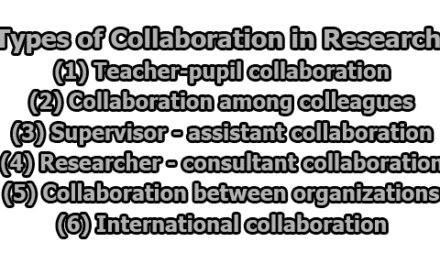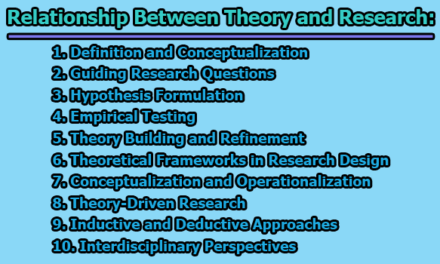How to Write the Acknowledgements for Your Thesis or Dissertation:
The acknowledgements section of your thesis or dissertation is a pivotal component, providing you with the chance to express gratitude to those who played a crucial role in the success of your research project. This section, though less formal than other parts of your academic document, holds great significance as it allows you to recognize the guidance, support, and resources provided by individuals during your research journey. This guide will explore how to write the acknowledgements for your thesis or dissertation.
Understanding the Acknowledgements Section:
The acknowledgements section is not merely a list of names; it is a profound expression of appreciation for the diverse contributions that made your academic endeavor possible. While it is generally a relatively brief and less formal section, it holds immense personal and academic value. Its purpose is to acknowledge and honor the people and entities that have shaped your research journey.
Who to Acknowledge:
Determining who to acknowledge and in what order is crucial. The hierarchy of acknowledgements typically follows a logical progression:
Level 1: Supervisors and Academic Staff: Initiate your acknowledgements with those who provided academic guidance, including your thesis or dissertation supervisor, advisors, and other faculty members. These individuals have likely played a pivotal role in shaping the direction and quality of your research.
Level 2: Funding Bodies or Sponsors: If your research received financial support, acknowledging the funding bodies or sponsors is essential. While specific details about the funding are not necessary, recognizing their role in bringing your project to fruition is a professional gesture.
Level 3: Colleagues and Peers: Move on to those who contributed intellectually to your work, including fellow cohort members and researchers. Acknowledge those whose insights, discussions, or collaborative efforts enriched the quality of your research.
Level 4: Family, Friends, and Pets: Conclude by acknowledging your personal support system—those who provided emotional and moral support. This can include family, friends, and even pets. A personal touch in this section adds a humanizing element to your academic work.
While this suggested order provides a structured approach, the acknowledgements section is inherently personal. Feel free to adjust the order to align with the specific contributions of individuals and any guidelines or rules provided by your university.
How to Write the Acknowledgements Section:
Crafting the acknowledgements section involves striking a delicate balance between a formal tone and a personal touch. The use of plain, straightforward language is recommended, avoiding heavy academic jargon. Here are some phrases you can incorporate:
- “I would like to express my appreciation to…“
- “I’m particularly grateful to… as they provided…“
- “Special thanks to… who did…“
- “I had the pleasure of working with… who helped me…“
Position the acknowledgements section in the preliminary matter, typically after the abstract and before the table of contents. In terms of length, the section usually spans one to three paragraphs, but adhere to any specific guidelines provided by your university.
Practical Example: “I would like to express my deepest gratitude to Professor Johnathan, whose expertise and knowledge were invaluable during this research. My sincere thanks also go to the University Research Fund for their financial support. I am deeply thankful to my colleagues, Ralph and Rosalind, for their insightful discussions and moral support. Lastly, I must acknowledge my family for their unwavering love and encouragement. Without your support, this project would not have been possible.”
In conclusion, writing the acknowledgements section of your thesis or dissertation is an opportunity to reflect on and express gratitude for the support received throughout your academic journey. Remember to acknowledge those who significantly contributed, maintaining a balance between formal and personal tones. Keep the section concise, reflecting sincere appreciation in a genuine and professional manner. In a nutshell, let your acknowledgements showcase the human side of your academic achievement.
Frequently Asked Questions (FAQs):
Can I include humor in my acknowledgements?
A touch of light humor is acceptable, but it should remain appropriate and professional, given the academic context.
Can I acknowledge someone who provided emotional support?
Absolutely. Thank anyone who offered emotional support, motivation, or informal advice that contributed to your academic journey.
Should I mention challenges faced during my research?
Briefly mentioning significant challenges can highlight the importance of the support you received. However, keep the focus on gratitude rather than delving too deeply into the challenges themselves.
Can I acknowledge the contribution of participants in my research?
Certainly. If your research involved participants, especially in social sciences or human studies, acknowledging their contribution is courteous and ethical.
How do I acknowledge posthumous gratitude for someone who passed away during my study period?
Acknowledge a deceased individual with the same respect you would a living contributor. Add a note of remembrance, such as, “I would like to posthumously acknowledge Anderson and Robinson for their invaluable advice and support in the early stages of this research.”
Is there a limit to the number of people I can acknowledge?
While there’s no strict limit, aim for conciseness. Focus on individuals who had a significant impact on your research and academic journey to maintain the sincerity of your gratitude.
How do I acknowledge a group or organization?
Mention the entity by name and, if applicable, include specific individuals within the organization who were particularly helpful. For example, “I extend my thanks to The Speakers Foundation for their support, particularly Mr. Joseph, for their guidance.”

Former Student at Rajshahi University










